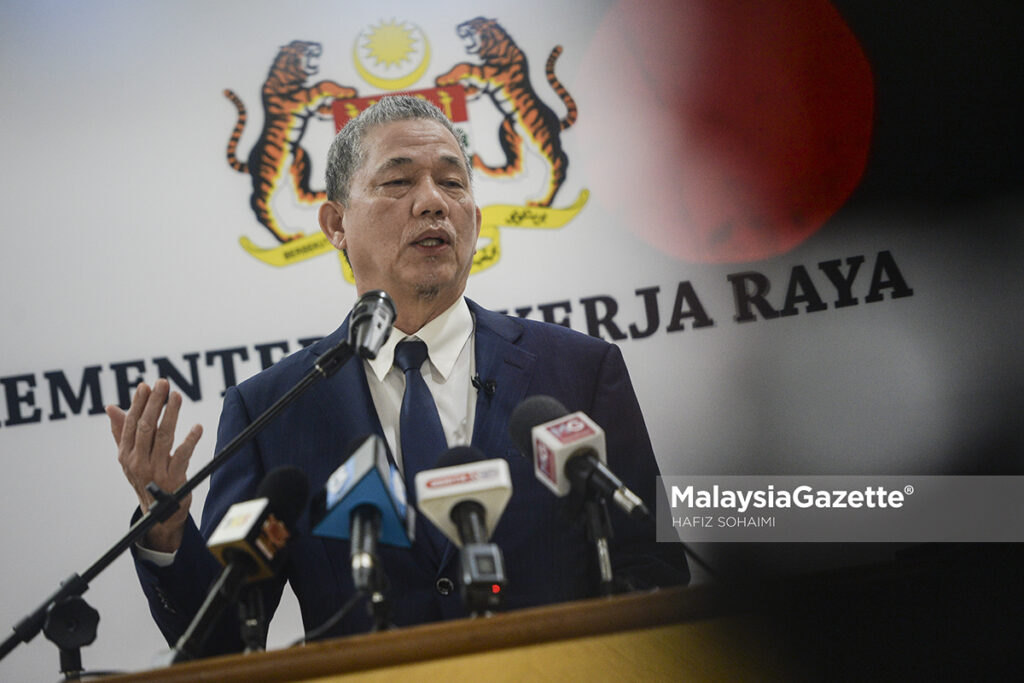
KUALA LUMPUR – The toll restructuring is not Pakatan Harapan (PH)’s policy because the initiative has been implemented by Barisan Nasional (BN) since 2002 to reduce the burdens of the people.
Ministry of Works (KKR) had started the initiative since 2002, meanwhile, the PH only became the government in 2018, 16 years after the initiative was kicked off.
Minister of Works, Datuk Seri Fadillah Yusof said, the BN government has decided for KKR to negotiate with highway concessionaires to restructure toll rates of the main highways in the country along with other relevant agencies since 2002.
The initial negotiation with the concessionaires were based on traffic projection. Upon the completion of the highways and they are fully functioning, the actual traffic will be obtained and used for restructuring negotiation.
According to Fadillah, the restructuring plan is a continuous initiative to ensure that the people would not be burned by exorbitantly high toll rate.
The restructuring negotiation strategy would consider the following:
- Reduce the intercity toll rate in stages
- The increment on the cost-of-living
- Commitment of concessionaires (loan)
- Effect to the Government (compensation)
- Highway toll rate
Based on the aspirations of the government, all operational highways have undergone several restructuring processes to ensure the toll rates are appropriate.
For example, the toll rate for Damansara-Puchong Expressway (LPS) was restructured in 2007 at its current rate.
Besides that, several toll plazas have been abolished including Slim River, Perak in 1993, Senai, Johor Bahru in 2004, Salak Jaya Toll Plaza of the Sungai Besi Expressway (Besraya) in 2009, Kg. Medan on-way toll plaza of the New Pantai Expressway (NPE) in 2011, Cheras-Kajang one-way toll plaza in 2012 and the Federal Highway, Bukit Kayu Hitam, Kedah, and Eastern Dispersal Link (EDL) in Johor in 2018.
The government also set-up a subsidy lab in 2009 to study the best alternative to resolve toll increment issues, however, the decision then was to maintain the existing toll rates due to the negative implications on the government and country from the perspective of the investors.
Nevertheless, the government has never stopped seeking the best alternative for the welfare of the motorists while ensuring the interests of the investors by making several other studies.
The Cabinet Ministers Meeting on 3 October 2018 had agreed for the KKR and Ministry of Finance (MOF) to present the findings of the long-term cost-benefit analysis and studies to the government following the suggestion to sell the government highways to local private companies.
This took into consideration of various aspects such as the reduction of toll collection and political impact to the Government among others.
Following that, KKR appointed accredited auditor, KPMG PLT in January 2019 to help the Government study the direction of the toll industry in the country holistically, including the proposal to reduce short-term, mid-term and long-term toll burdens.
In 2019, in line with the PH Government manifesto, KKR revised the highway industry by focussing on the effect of toll on the cost-of-living and gave proposal on the best solution to overcome the issue.
However, taking into factor of the burden of the government in implementing the takeovers, the PH government had modified the proposal of manifesto.
The government then agreed with the restructuring plan by Gamuda Berhad involving four highway concessionaires (KESAS, LDP, SPRINT dan SMART) where there will be no more toll increment for the four highways based on the continuity from the joint-initiative with KKR, MoF and the Public Private Cooperation Unit from the Prime Minister’s Department which was implemented six years ago.
To realise the restructuring proposal, the takeover cost for the four companies was RM5.48 billion, RM720 million lower than the acquisition offer by the MoF to the company involved in 2019 at RM6.2 billion.
Besides that, under this restructuring plan, the government would not spend anything for the transaction, no issuance of guarantee to the Amanat Lebuhraya Rakyat Bhd (ALR) financing and would not need to bear any maintenance and operational cost with this restructuring proposal.
Unlike the offer given by the MoF in 2019, the government had to give a guarantee of RM6.2 billion to finance the proposal to takeover the four concessionaires.
According to Fadillah, the guarantee would expose the government to financial risks and the collection from the people would need to be used to bear that risk.
Besides that, the 30% discount could also be implemented by any government, depending on the compensation payments.
“I would like to highlight here that as a responsible government, the government should not use the allocation that is supposed to cater for the people as compensation.
“18% or 30% of discount or any other percentages proposed would all involved compensation payments and they don’t come free.
“The government’s proposal today is also different with the Pakatan Harapan’s plan, where the toll or traffic congestion charges will be collected after the toll concessionaires collected them as per the PH Finance Minister’s statement on 26 June 2019,” he said.

This proposal is more appropriate to ensure no toll increment which requires any form of cash compensation.
We must also take note that all agreements are the government’s promises along with the private sector which is closely monitored by the investors and government and we cannot simply give empty promises or do something which would affect the confidence of the investors.
Therefore, after considering all these factors, the government agreed with the latest proposal, where, there will be no more shareholders and it must be done voluntarily by the existing shareeholders.
“There is no nationalisation elements here as in the previous proposal and the toll rate would remain the same. As there is no shareholder, thus, there would be no commercial elements such as dividend payment which would increase the cost.
“Therefore, the concession period from now onwards is merely to bear the financial and cost and the operational and maintenance cost,” he said. -MalaysiaGazette
Read More:
Government saves RM4.3 billion by restructuring 4 highway concessionaires












